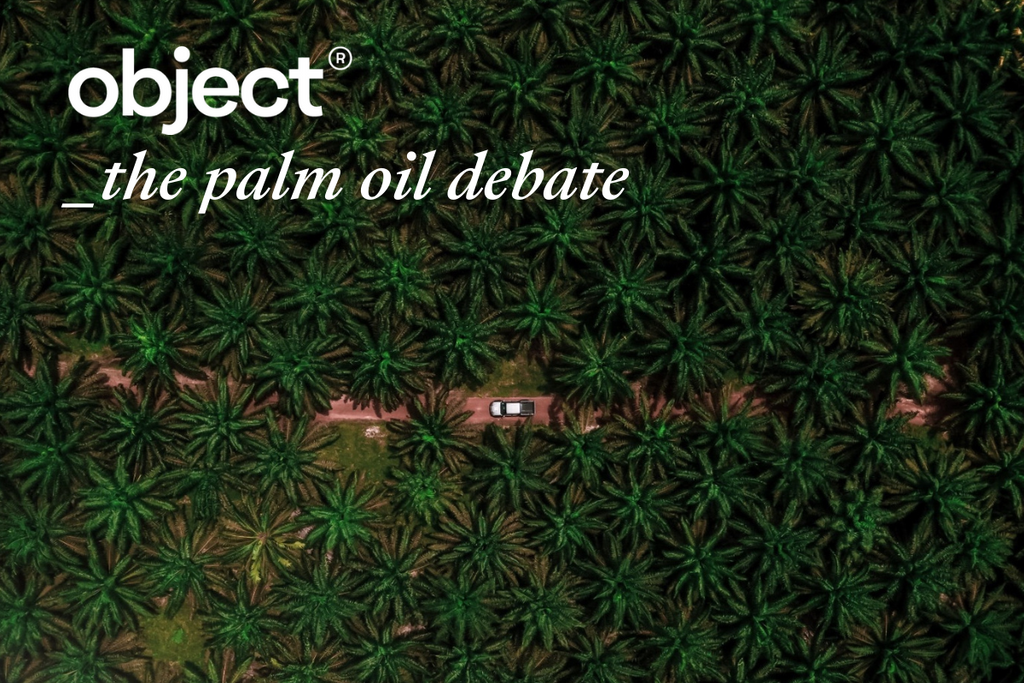What is palm oil?
Palm oil is an edible vegetable oil that comes from the fruit of oil palm trees, the scientific name is Elaeis Guineensis.
Oil palm trees are native to Africa but were brought to South-East Asia just over 100 years ago. Now, Indonesia and Malaysia make up over 85% of global supply, but there are 42 other countries that also produce palm oil.
What products contain palm oil?
Palm oil is an unbelievably useful and versatile product with many qualities – it’s semi-solid at room temperature so it’s used to make spreads, it doesn’t oxidize so it stops food going off, it’s great for frying as it doesn’t become unstable when hot, and it’s odourless and colourless so can go in any food without you realising.
As a result, you’ll find palm oil in nearly everything – close to 50% of UK packaged goods contain it, from pizzas to chocolate, shampoo to lipstick.
Palm oil is now the world’s most popular vegetable oil, accounting for one-third of global consumption.
What’s the problem with palm oil?
Palm oil production has rightly received a lot of negative press over recent years, mainly because it needs to be grown in a rainforest climate - 85% now occurs in Indonesia and Malaysia in areas of outstanding biodiversity.
This has resulted in:
1. Deforestation
Palm oil plantations have devastated many countries in the tropics – they alone account for 47% of all Borneo’s deforestation since 2000.
2. Endangered species destruction
Plantations replace the natural habitat of many critically endangered animals including orangutans, Sumatran tigers and rhinos. In Sumatra, there is now 4 times more land cultivated for palm oil than there is orangutan habitat remaining.
3. Carbon dioxide emissions
Compounding things further, lowland rainforests are built on peat which is a huge store of carbon. Clearing, burning and draining these for palm oil cultivation produces a huge amount of greenhouse gas emissions – Indonesia is now in the world’s top 5 CO2 producers.
4. Biofuel
Further compounding point 3 above, 61% of palm oil consumed in the EU is used as bio fuel. With their CO2 and methane emissions, palm oil-based biofuels actually have three times the climate impact of traditional fossil fuels.
5. Indigenous rights abuses
The palm oil industry is notorious for human rights violations, from illegally appropriating indigenous people’s land to entire village clear-outs. Nearly 45 million people live in Indonesia’s forests and palm oil has been responsible for 5,000 land and human rights conflicts.
6. Child labour and working rights abuses
The palm oil industry has been rated by the US Department of Labour in the top 4 worst industries for child and forced labour (clothing is also in the top four – see our article on fast fashion here).
Can palm oil be sustainable?
In a bid to tidy up the industry, the Roundtable on Sustainable Palm Oil (RSPO) was founded in 2004. However, as little as 35% of palm growers that are members of the RSPO are actually certified by them (they just pay to be ‘members’) - meaning they don’t have to stick to the guidelines. There are many problems in implementing the RSPO standards so some palm oil producers that are certified have not actually enacted their regulations.
A recent report concluded that areas that the RSPO had certified as sustainable in Indonesia, Malaysia and Papua New Guinea degrade as much primary forests as non-certified areas. In fact, they had been subject to more tree removals. It states that “in other words, certified palm oil production may not be so sustainable”.
Is a boycott on palm oil the solution?
Some argue that the alternatives to palm oil could be even worse: as destructive as palm oil is to the environment, it can yield at least 5 times more than any other crop – as well as using up less land, oil palm requires significantly less pesticide or fertilizer than any other vegetable oil source.
As a result, palm oil supplies 35% of the world’s vegetable oil demand on just 10% of the land. To get the same amount of oil from other plants would require between 4 and 10 times more land, which would just shift the problem to other parts of the world and threaten other habitats and species.
Furthermore, many developing countries rely on palm oil to boost their economies and millions of smallholder farmers’ livelihoods depend on its production.
Interestingly, Indonesia has even claimed that attacks on palm oil from richer countries are in fact an attempt to levitate world oil production to crops that they produce.
The solution?
There is no easy fix to the palm oil crisis, however, one thing that is clear is that we need to ensure that ‘sustainable’ palm oil really is sustainable. The RSPO standard is a starting point but it needs to be strengthened and, importantly, companies need to be more aware of and take responsibility for where the palm oil in their products comes from.
As the recent David Attenborough documentary a life on our planet stated, stopping deforestation, including land used to produce palm oil, is essential if we want to avoid total destruction of the natural environment. See our previous article on this here.
Diversifying world oil production (not an outright boycott) could help ease the pressure of demand on such a concentrated and delicate part of the world’s ecosystem. And we (led by Europe) should not be buying palm oil for use as a ‘bio fuel’, as it is anything but.
At object, we have decided not to use palm oil in any of our products and we are working to ensure that the natural oils that we use in our products come from sustainable sources. We will not use palm oil until we are confident that palm oil really is sustainable.


leave a comment, we'd love to hear from you